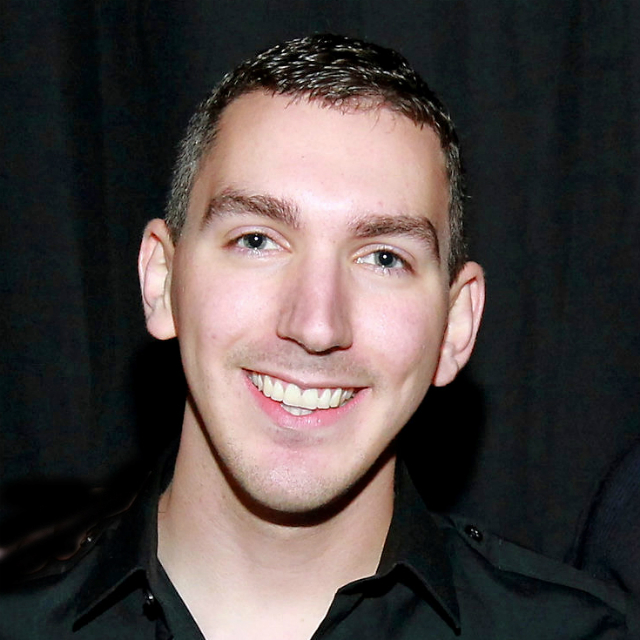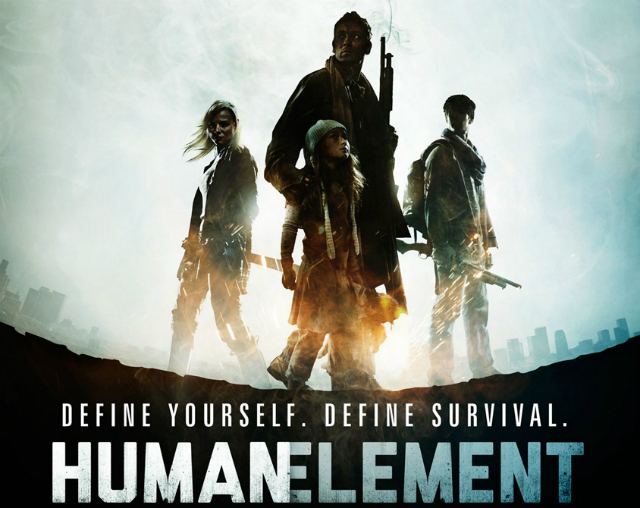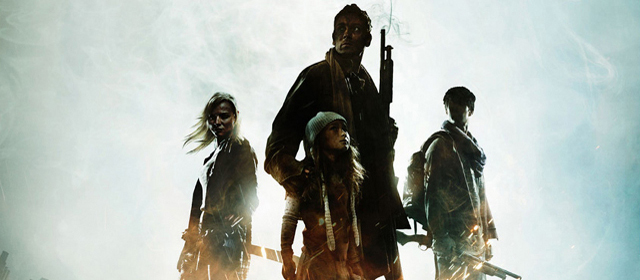Almost a year after my last interview with Robert Bowling, I sat down with the ex-Infinity-Ward-Creative-Strategist-cum-entrepreneur to talk about his new development studio, Robotoki, and their first exciting new project, Human Element. The interview gave us some key insight into how he works and what his vision for Human Element is.
We think you’ll agree, he’s a fascinating, charming chap.
What is Human Element all about, and when can we expect to see it?
The core console/PC experience is 2015, we’re looking at doing some things that are either iOS /mobile or different PC SKU’s that can come out earlier. The key thing is, the events of the console/pc game happen 35 years after ‘the event’ happens in-game, the apocalypse, so, we know how to deal with zombies, they’re not really a threat to us, they’re more of an annoyance, but they’re still present in this world and we still have to deal with them; the real threat is surviving with all the other human elements. What I thought would be exciting is, as we lead up to that 2015 release date, to have different experiences and ways that we can allow players to engage: start their characters, start their progression in this world prior to that core FPS experience, maybe through tablet, maybe through other indie interfaces that allow you to maybe experience the world a week after ‘the event’, a month after ‘the event’, and really lead this progressive gameplay, all the way up to that core cinematic experience.
With this access-anywhere kind of experience, would you be tempted to incorporate SmartGlass and Wii U, or is it aimed more towards Android/iOS?
Both, actually. Here’s the key thing: I obviously like first person shooters, but maybe I have friends who that just isn’t their genre, but the world of Human Element still interests them. So I want to look at ways that we can make this world, just like our actual world here in real life, accessible to everybody, depending on how you want to do it. And they should be able to contribute to your success and your failures just as much, even if they’re not playing the same style of game.
So think of it in the sense that you’re at home, you’re out scavenging, fighting survivors, building fortifications, doing all that stuff on the ‘at-home’ experience. Then you leave. You go out and about, you’re on a train, plane, you’re travelling or whatever, you pull out your iPad and you load up Human Element – and this could also work with SmartGlass technology, if you’re playing at home as well – but let’s say you’re out and about, this is a completely seperate experience, now we’re pulling in maps APIs (Google/Bing Vs. Foursquare) and we’re overlaying the world of Human Elements on top of that. So now you can be out and about scavenging real world locations for dynamic supplies that are based on that location. So like a pharmacy will have basic medical supplies, basic food, or a Walmart will have the basics of everything you need. What’s really exciting about that is it allows you to have a different sort of strategy, you know, inventory/medical experience here, where as on [the console] you have the full blown FPS experience.
So imagine being in the world of Human Element on your couch, you get injured, you need medical supplies, you’re hurt, you’re like “oh shit!”, you either don’t want to risk going out scavenging in your game, or you’ve already tried and you can’t find anything, you need something really badly and you know there’s a pharmacy four miles up the street. Get in your car, drive up there, check-in to that place, start scavenging it for supplies that are feeding back into your character. That’s when I say platform agnostic. That’s what I mean. It doesn’t necessarily mean how we think of cross-platform play now, where you’re playing next to another player on another console/system, no, this is allowing different profiles to live in different places, and because we have cloud gaming, we actually have all the background technology we can utilise now, we can transfer a lot of information and allow the actions on all these different platforms to impact the state of your world in a unique and different way that we’ve never done before.

This all sounds absolutely fantastic, if not rather ambitious.
All this technology is out there today, in individual forms. We are developing technology that pulls it all in together. A tech backend that allows us to utilise all this information technology that’s already out there and execute it in a way that hasn’t been done.
We have a unique advantage that a lot of start-ups don’t have. We came into this and made a big splash on day one. We’ve had a lot of great partners come out of the woodwork, a lot of great people that want to help out and really make these experiences come to life. And what I think is most exciting is the fact that we are being so ambitious and we’re experimenting so much that it’s bringing a lot of different creatives to the table, that just excites them on a core level. It’s not about the money. We’re not out to make a billion dollar franchise, no, we’re just out to make a cool, fun experience that no one’s made before.
Obviously you had a key role in the development of what is now the biggest multiplayer franchise in video game history, so I have to ask, will there be a multiplayer experience, and how will they play out?
There is a very separate multiplayer experience, that is very different form the “campaign” experience. I never will call it a single player experience, because that is not what we’re aiming for. While you are living out very individual stories, your story isn’t pre-determined. We don’t have a Point A to Point B plot line that we’re trying to tell. We have a world that we’ve created, that is a very open world and then there are a series of dynamic events that you will come across, but when you come across them, how you come across them are all dynamic depending on where you are in the world, where you start out and how you start out. As we broke down, there are two major factors that decide who you are and how this world will treat you. 1) Your gender. Are you male or female? 2) Your identity. Your ID will translate into your difficulty, because we’re not scaling difficulty in the sense of AI intelligence, damage, frequency of undead or survivors. We’re not doing that. What we’re doing is, your difficulty is determined by your scenario. So think of Easy as you’re just a solo adult, you’re either male or female, all you have to worry about is yourself. Therefore it is inherently easier to survive. Medium is two adults partnered together, trying to survive. So then at least you have someone else helping you out. But now you have to split supplies, you have two people to worry about. It’s inherently a little bit harder than surviving on your own. Then think of hardest difficulty as an adult with a young child. So now you have another person you have to worry about, split supplies with, they can’t defend themselves. They’re doing things that might get you in trouble, but they’re also putting you in unique situations that you just normally wouldn’t encounter or wouldn’t worry about as much as a solo adult.
So that really determines the world and the dynamic scenarios you will come across and how you approach those scenarios, how you solve them, how you decide to live in this world. Whether you’re action focused or you’re intelligence focused, so you’re not trying to be in combat all the time, you’re trying to create alliances, create fortifications, going for the trading/scavenging gameplay, rather than the brute force “I’m gonna take what I want, fight for what I need” mentality. Depending on how you approach this world, will determine your individual story throughout it.
Let me give you an example of a game that’s out, Fallout 3. I had friends and co-workers who started the game at the same time as me and a week later we’d be talking about what happened last night, and we’re in completely different places, telling completely different stories, and even the same people we encounter, two completely different things happen. That’s the exciting thing about games to me, that gives you that feeling of infinite possibility. That’s what always made videogames fun for me and I feel like we’ve got away from that a lot. The experience is so focused, so structured, that you don’t have that fun of infinite possibility. We’re sent on very fun and exciting journeys, and that’s great, but I feel like it’s time for that feeling of you don’t know what’s going to happen anymore.
You are in much more control of how this world is going to treat you. I hate when I’m told when the fun is over. When the game is done. I don’t like that, I want to get away from the game mechanics – the gamification of this world – as much as possible.
What I love is, what if I’m just a guy. This is a mentality that’s taken up a lot in PC game design, but not on console design: “What if I just don’t want to play this, the way you design it?”. “What if I just wanna go and be a shop keeper. All I want to do is barter supplies and trade with people. Maybe it’s not fun for someone else, but it’s fun for me”. I think it’s our job as designers, to create a world – a platform – that allows you to dictate what’s fun. Not for us to structure it all for you, and say OK this is fun, and this is how it’s supposed to be fun for you. That’s not an interesting world for me. Not everyone’s a soldier, not everyone’s a scavenger, an interesting world is made up of a variety of people who are living life a variety of ways.

To clarify, there will be no endgame to this title?
That is the plan. It is a dynamic world that progresses. We don’t want it to end. Instead, what we want to do is use the technology that we have today – changing up the traditional DLC model – and using it to change the entire state of the world. I’ll give you an example: imagine surviving in this world for six months, you create expectations as a player, what you need to survive, what it means to survive and then one day you load it up, you download an update and winter has hit. Now your expectations of survival are completely different. Your needs are completely different. It changes the gameplay. Or something not as dramatic, imagine living in this world for six months, again you’re living, you’re surviving, you have all this stuff and you know how the world works, in your mind. Then you suddenly see this burning C-130 flying overhead, up to this point you’ve never seen aircraft! It’s 35 years after ‘the event’, there are no pilots, there are no air fields. You see this burning C-130 fly over and crash in the distance, every player in that world will instinctively want to go to that crash, because again, it’s infinite possibility. What’s in there? What happened? Why is this suddenly in this world, that wasn’t before? Maybe after ‘the event’ happened, the top 10% of the smartest/richest people in the populations evacuated back to an island somewhere, and they’ve been there this entire 35 years, but something’s fucked up and now they’re back and they brought new technology, they brought something that will change the playing field of the world. Just the possibility of that, not saying that’s exactly what we’re going to do. Just that, makes your mind race. Makes you think of how this world can keep going and your story, how you approach this new challenge, will change everything. There doesn’t ever have to be an end. The only true end is your death.
This is your first year attending E3 as an indie, how has that experience different from previous years, representing Modern Warfare?
I expected it to be very different, but I was surprised it’s still as busy as ever. We announced Human Element on Day 1 via Game Informer, and we’ve just been doing a lot of press, a lot of meetings, and it’s busy but in a different way. A lot more fun, a lot more casual than representing a huge mega franchise.
Has the response to the Robotoki studio reveal been a shock? Everyone seems really pleased for you!
I’m happy with it! I’m shocked at the amount of response that we’ve been getting, because we’re an indie, we’re a start-up. This is a new IP that nobody knows about and the big scary thing about new IPs is that nobody knows about them, and we have to get awareness out there; and we’ve been getting so much awareness, since the announcement, that it feels great, it feels amazing, because this is something completely new. This is not what we’ve been doing in the past and to see the response to that, and the excitement to that and that people want to see that come out, that’s been really encouraging for us to keep pushing forward.
It must give you more pressure as well though?
A lot of pressure, yeah. But that’s good! That’s going to keep us working, that’s going to keep us excited, because we have a lot of work ahead of us.
About the team. Who are you working with at the moment?
We can’t make any announcements just yet, all that stuff is going to be happening after E3. This is the week of finalising all the big stuff. Once we’re a little further down the line, we’re going to be making all the partner announcements.
We have our 8 core guys, who are setting up the infrastructure and the foundation for everything, those are going to be the leads. From there, we’re going to be building out. By the end of it, I plan to be 86 people strong, and I don’t want to be more than that. Back at my old studio, we typically hovered around 100, and I felt like that was a little much, depending on the property you’re working on, but we really want to stay lean and nimble. Especially as an independent. That’s how you’re gonna work best as a team, as a whole. Every compartment can be completely aware. And the key thing of how we’re approaching design is, we don’t let anybody’s job description be their confines. We want everyone to really contribute their expertise however they see fit. We want people to contribute as much as they want to, regardless as to if its in or out of their department; because I think that’s really what keeps that cohesive, creative, emotional and intellectual investment in the projects you’re working on. You feel like you have a hand in every single part of it.
It should also be noted that Robert is self-funding the launch of Robotoki, to give the team a chance to start building the infrastructure, while they work on partner deals with publishers and external investors. How’s that for dedication?





